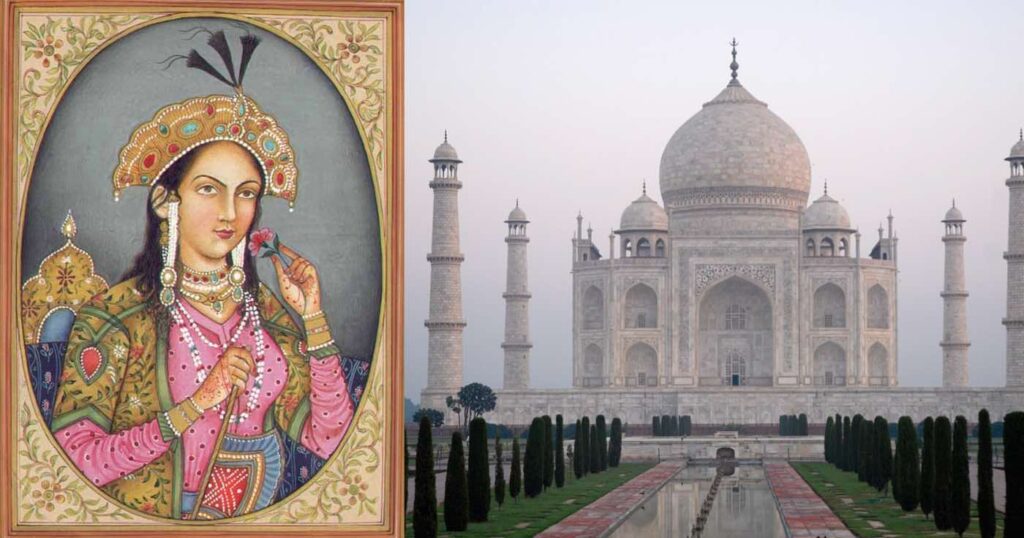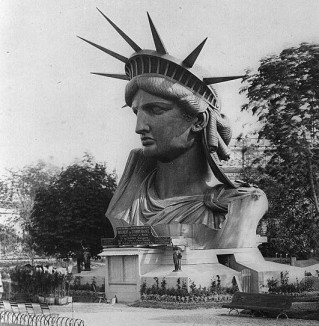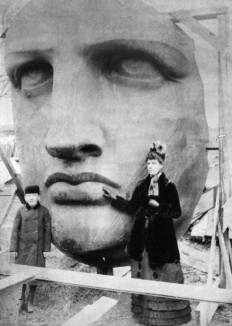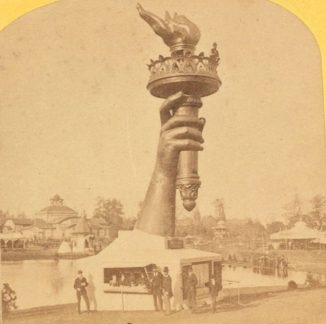66 years ago today, Thinks Fall Apart, believed to be the most read, best-selling African novel ever written, was published. Nigerian author Chinua Achebe depicts the events of pre-colonial life in Igboland, a cultural area in modern-day southeastern Nigeria, and the subsequent appearance of European missionaries and colonial forces in the late 19th century. The novel was first published in the United Kingdom in 1958 by William Heinemann Ltd and became the first work published in Heinemann's African Writers Series before becoming is widely studied in English-speaking countries around the world. READ about the plot… (1958)
 Things Fall Apart – fair use
Things Fall Apart – fair useThe novel follows the life of Okonkwo, an influential leader of the fictional Igbo (“Ibo” in the novel) clan of Umuofia. Among other things, he is a feared warrior and a local wrestling champion. The novel is split into three parts, with the first describing his family, personal history, his violent exterior and tortured soul, and the customs and society of the Igbo. The second and third sections introduce the influence of European colonialism and Christian missionaries on Okonkwo, his family, and the wider Igbo community.
It has sold more than 20 million copies worldwide. TIME Magazine included the novel in its TIME 100 Best English-language Novels from 1923 to 2005. The novel has been translated into more than 50 languages, and is often used in literature, world history, and African studies courses across the world.
Achebe is now considered to be the essential novelist on African identity, nationalism, and decolonization. Achebe's main focus has been cultural ambiguity and contestation. The complexity of novels such as Things Fall Apart depends on Achebe's ability to bring competing cultural systems and their languages to the same level of representation, dialogue, and contestation.
MORE Good News on this Date:
394 years ago today, the Mughal emperor Shah Jahan lost his wife during childbirth and called for builders to begin work on the Taj Mahal, the world's most admired mausoleum.
He spent the next 20 years building her tomb from ivory-white marble on the southern bank of the river Yamuna in the Indian city of Agra. Housing his favorite wife, a noblewoman named Mumtaz Mahal, he himself is also entombed there.
 (right): Kristian Bertel, CC license
(right): Kristian Bertel, CC licenseThe 42-acre (17-ha) compound includes a mosque and guest house set among formal gardens bounded on three sides by castle walls.
The complex, completed in 1653, cost around 32 million rupees, which in 2020 would be almost a billion American dollars (or 70 billion rupees). Some 20,000 artisans were employed to work for the imperial architect Ustad Ahmad Lahauri.
Jahan's grief became one of the world’s greatest love stories, and resulted in “The Jewel of Muslim Art in India”, a universally-admired masterpiece that attracts 7–8 million visitors a year. (1631)
91 years ago today, Harry Browne, among the first men to introduce Libertarianism to a national audience, was born in New York. Browne was known as a principled, humble, and very litigious man. Serving in the Army and Army Reserves, he ran as the Libertarian Presidential Candidate in 1996 and 2000, appearing on the ballot in all 50 states. He effectively introduced Libertarian concepts with an economy of words that few men since the Founding Fathers were able to do on a national scale. (1933)
 Harry Browne speaking at the National Libertarian Convention in Virginia, 1996. Harry Browne – cc 3.0. carolmooredec.
Harry Browne speaking at the National Libertarian Convention in Virginia, 1996. Harry Browne – cc 3.0. carolmooredec.“Governments don't protect you. All they can do is promise to make the person who hurts you pay for his crime — if they can catch him.”
“The income tax is the biggest single intrusion suffered by the American people. It forces every worker to be a bookkeeper, to open his records to the government, to explain his expenses, to fear conviction for a harmless accounting error. Compliance wastes billions of dollars.”
Browne also pioneered a strategy of investing known as the “Permanent Portfolio,” which sought to make one's accounts immune to the ravages of both inflation and market crashes by picking a mix of defensive commodities and proven equities. To this end, he wrote 9 books during his life on the subject of economics and investing, with several more being released posthumously after he died of Lou Gehrig's disease in 2006 at the age of 72.
54 years ago today, Carole King’s ‘Tapestry’ reached No.1 on the Billboard album chart —and stayed there for 15 weeks.
With hits like ‘It's Too Late’, ‘I Feel the Earth Move’, and ‘You've Got a Friend’, it’s one of the best-selling albums of all time, with over 25 million copies sold worldwide, and four Grammy Awards. The cover photograph taken at King's Laurel Canyon home shows her sitting in a window frame, holding a tapestry she hand-stitched herself, with her cat, Telemachus, at her feet. (1971)
 Bruce Givner photo by Damianbec, CC license, second photo Fair Use
Bruce Givner photo by Damianbec, CC license, second photo Fair Use52 years ago today, two unknown D.C. workers in their 20s set into motion the unraveling of the most explosive political scandal in U.S. history—and it led to the humiliating resignation of the sitting U.S. president. At the Watergate Hotel, when every other employee at the Democratic National Committee headquarters had gone home, a UCLA intern, Bruce Givner, stayed around for hours making free phone calls, while across the street the burglars, who were hired by the White House, waited for the lights to go out.
By the time Givner did go home, and the break-in commenced after midnight, the team’s ‘lookout man’ had begun to watch television and missed the arrival of five undercover policemen. Who called the cops? It was a 24-year-old building security officer named Frank Wills. Though there was 45 minutes left before he was due to recheck that every door was locked, he felt an intuition that he described to investigators as a “sixth sense,” which told him to check them sooner. He found duct tape that had been inconspicuously placed on a latch bolt on the basement door adjacent to the parking garage.
Five men (including a CIA official) who all worked for President Nixon’s ‘Committee for the Re-election of the President’ were arrested that night. Wills’ handwritten logbook from that evening, became a treasured artifact in the National Archives. And after Washington Post reporters Bob Woodward and Carl Bernstein painstakingly uncovered the extent of corruption, wiretapping, enemies lists, and slush funds—thanks to these two unknown laborers—several of the president’s powerful political conspirators went to prison, and America had a new leader. And, since the Watergate break-in, every scandal of any type has been tagged with the suffix ’gate’ to describe a conspiracy of wrongdoing. (1972)
139 years ago, the Statue of Liberty arrived in New York packed in 241 crates, as a gift from France.

The steel skeleton and copper skin were assembled on Bedloe’s Island, later called Liberty Island, and placed on a pedestal to be aligned so that it would face southeast, greeting ships entering the harbor from the Atlantic Ocean. With the abolition of slavery and the Union’s victory in the Civil War in 1865, the prominent French anti-slavery law professor Edouard de Laboulaye, wanted to honor America’s achievements and also, inspire his own country to call for democracy and end the repressive French monarchy of the Napoleons, which they did, four years later.

He found a sculptor, Frédéric Auguste Bartholdi, to begin the design of the statue, called Liberty Enlightening the World, and asked the US to pay for the pedestal. On the tablet, meant to represent justice, Bartholdi inscribed the date of the Declaration of Independence, July 4, 1776, and included a broken chain around her feet. (1885) – Click to enlarge images.

SHARE the Milestones, Memories, and Music…
Source link

